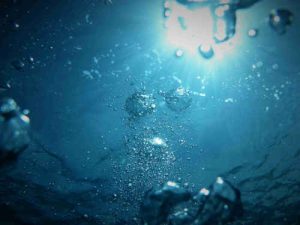
So let’s discuss the benefits of drinking water… Most of us have heard that drinking more water helps you stay young and healthy. With that in mind, let’s make sure we have our facts straight on this one and list out the benefits that actually do accrue by properly hydrating ourselves.
First of all, when I say “young”, I am referring to a youthful appearance to various beauty aspects like hair, skin, nails etc.
Why Is Drinking Water Important?
According to H.H. Mitchell, Journal of Biological Chemistry, the brain and heart are composed of 73% water, the lungs are about 83% water, the skin contains 64% water, muscles and kidneys are 79%, and even the bones have about 31% of water. In other words, our body is predominantly composed of water.
In addition to that, the various properties of water along with how our bodies are designed to utilize them make it a most vital component for our survival.
Benefits of Drinking Water for Skin

So how does drinking water help your skin??
One can say that the benefits of water are very apparent through your skin health. To clarify, we need to note that our nails are also a part of our skin.
In general, sufficient hydration of the body comes with the below benefits for skin:
- Flush Out Toxins – Water is vital for purifying the body. This is because it helps flush out toxins, mainly via urine and a very little by sweating.
- Make Face Glow – Drinking water helps you maintain a more clear skin and gives a glowing appearance to your face.
For instance, it flushes out the toxins from your body that are responsible for many skin marks. This in turn helps you prevent acne and pimple to an extent, thereby making you look more fresh and radiant.
- Increase Skin Elasticity – The elasticity of skin increases when you drink more water and this, in turn, helps you reduce wrinkles.
Moreover, fat tissue does not consist of water. So during weight loss, when you lose fat, a sagging of the skin may be observed. But, sufficient water content in the body will help to prevent this.
- Keep Nails Healthy – Water is vital to processing the vitamins in your body which, in turn, contribute to your hair growth.
- Prevent Skin Disorders – Water also helps you combat skin disorders like psoriasis and eczema.
Benefits of Drinking Water for Hair

Water makes up about 25% of a single strand of hair by weight. So it goes without saying that water is essential for healthy hair.
- Aid Hair Growth – Water is vital to processing the vitamins in your body which contribute to your hair growth.
- Prevent Brittle Hair – Lack of moisture in hair leads to brittleness and split ends. This also stunts the growth of hair.
- Fight Dandruff – Proper hydration of hair roots help you fight dandruff.
Can Drinking Lots of Water Help Lose Weight?

This is a common question as well as an advertised health benefit of drinking water. So does drinking water help lose weight??
The answer is yes. Let’s find out how:
- Reduce Energy Intake – Pre-loading with water before meals can help you eat less and result in weight loss. In other words, drinking water about 30 minutes or so before you eat a meal can help you with weight loss.
A study was published by the Clinical Nutrition Research in 2018 on whether water consumption reduces energy intake and affects satiety. In conclusion, it was found that pre-meal water consumption acutely reduced energy intake among the subjects. And moreover, they did not feel any less “full” by their meals even though their intake was lower.
- Keep Fit – When you work out or exercise your body loses fluid at a high rate due to sweating. Consequently, this can result in exercise-induced dehydration and lead to health problems. Drinking water benefits your body to replenish the lost fluids and stay sufficiently hydrated.
A 2019 study on this effect found that water is essential to maintain endurance and aerobic capacity.
- Increase Metabolism – Drinking water benefits your weight-loss strategies by helping to speed up your body’s metabolic rate.
Water also increases your resting energy expenditure and helps you lose calories throughout the day.
To learn more about lesser known but highly effective weight loss strategies, check out our article on 18 Ultimate Tricks to Help You Lose 30 Pounds in 3 Months.
Other Health Benefits of Drinking Water
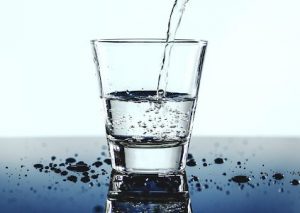
So what are the other benefits of drinking water?
Aside from the benefits of drinking water for skin and hair, there are myriad other health benefits of drinking water. Let’s go through them:
-
Helps Maintain the Body’s pH Levels
The body’s pH level should be ideally between 7.35 and 7.45. Lungs and Kidneys are vital for maintaining this. As a rule, the Kidneys require water as the medium to carry this out. Hence, drinking water benefits you by helping to maintain your body’s pH levels.
-
Keep Eyes Healthy
The eyes need water to form tears. Tears help you to clean and lubricate your eyes.
A 2015 study was conducted in Australia regarding the effect of eye health and water content in the body. As a result, it was found that sufficient hydration is vital in maintaining good eye health. Moreover, it helps to stay away from ocular diseases like dry eye syndrome, cataract, refractive changes and retinal vascular disease.
-
Helps in Digestion
Water helps in the secretion of saliva, which is an important component in digestion. Therefore, you will have difficulty in swallowing and digesting food if you are dehydrated.
-
Helps Maintain Energy Levels
The bloodcontains about 92% water, 8% blood plasma proteins, and trace amounts of other materials. Blood is responsible for the transmission of oxygen and other nutrients within and between different parts of the body.
Blood helps in the delivery of oxygen throughout the body. This helps you wade off fatigue. You tend to get tired when the muscles are depleted or scarce in oxygen content.
-
Maintains Cognitive Abilities
Water is necessary for brain to produce hormones and neurotransmitters. This means that not drinking enough water may cause impairment (mostly temporary) to your intellectual faculties and cognitive abilities.
-
Acts as a Shock-Absorber
Water surrounds many of your vital organs and helps in absorbing shocks; especially to brain and spinal cord.
-
Improves Digestive System
Water helps in breaking down and absorbing nutrients. It also softens stool and prevents constipation.
-
Maintains Cardiovascular Health
- When sufficient water is not available, the blood volume being circulated in your body decreases. This causes your heart to beat faster to make sure enough blood reaches the different parts of the body. As a result, you will feel palpitations (a rapid, strong or irregular heart beat) due to this.
- If left unattended, the symptoms may escalate to light-headedness, dizziness and in severe cases, cause fits, seizures or death.
-
May Save Your Life in Case of A Stroke
A 2015 study of stroke patients noted that people who were sufficiently hydrated during a stroke had a greater chance of recovery compared to people who were dehydrated.
-
Lubricates Your Joints
As you might already know, most protective fluids in the body have significant water component. The same goes for your joints and sockets.
When you are dehydrated, the body needs water for more vital functions to sustain life and it drains the available water component from wherever possible. That includes your joints. This may result in pain, inflammation and gout attacks.
-
Kidney health
Water helps you prevent many common kidney-related ailments like UTI (Urinary Tract Infections), kidney stones etc.
According to the European JournalJournal of Obesity, the collective evidence on related studies suggests that increased water intake is associated with reduced incidence of both initial and subsequent kidney stones.
Benefits of Drinking Water in the Morning
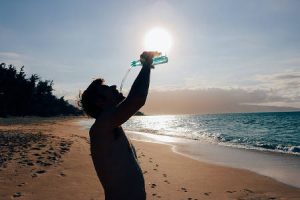
If I’m not mistaken, having a glass of water is one of the first things you do in the morning. It is widely accepted as a healthy morning routine.
Here are some benefits of drinking water on an empty stomach in the morning:
-
Re-hydrates Your Body
To start off with, when you wake up in the morning, your body is nearly dehydrated from not getting any moisture for the last 7-8 hours when you were asleep. Since many of us use air conditioners/heaters and fans, it exacerbates this condition of dehydration.
It benefits your body to re-hydrate first thing in the morning. Try it out. You will feel more refreshed and energized.
-
Promotes Gut Health
You need to haveenough water in your body to facilitate bowel movement and stay away from constipation. Drinking water in the morning ensures sufficient hydration for an easier bowel movement on one hand.
On the other hand, drinking water on an empty stomach also helpshelps in cleansing your colons. This in turn increases the efficiency of your intestines in absorbing nutrients.
-
Boosts Your Metabolism
Drinking water in the morning on an empty stomach immediately after waking up is an excellent way to start your day with an increased metabolic rate. Metabolic rate is the rate at which your body expends energy.
One of the factors that come into play here is the simple law of heat transfer. Two objects in contact will try to achieve a state of thermal equilibrium.
This happens by the expenditure of energy to maintain a state of thermal equilibrium between the water temperature and the body temperature levels. This is closely related to the increase in resting energy expenditure.
As the metabolic rate is directly associated with most diet strategies for losing weight, this effectively makes water the best morning drink for weight loss.
-
Improves Morning Breath
Bad breath in the morning is not a very pleasant experience for any of us and it is one those things that we are not so proud of about ourselves. Apparently, drinking water first thing in the morning might help with that.
A 2016 study in Netherlands observed that drinking water first thing in the morning led to a statistically significant improvement in morning bad breath.
Or we can just brush… 🙂
-
Boost Your Immunity
There is a decades-old tradition in Japan of drinking water on an empty stomach first thing in the morning. This is known as the “Japanese Water Therapy”.
According to the Japanese Medical Society, this practice of drinking water in the morning is a healthy morning routine that may help you fight many major and minor illnesses like – heart problems, palpitations, headache, arthritis, epilepsy, body pain, obesity, urinary infections, asthmatic bronchitis, diarrhea, menstrual disorders, gastritis, vomiting, ocular (eye-related) and ENT diseases, diabetes, piles, Meningitis etc.
There you go folks. Now you know why water is the best morning drink for health.
The Japanese Water Therapy
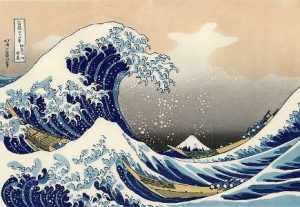
The Japanese Water Therapy is a decades old practice in Japan. The practice revolves around the concept that the waking hours in the morning can be considered as the “golden hours” and that the activities during this time can be most impactful. This is actually a widely accepted stipulation in the scientific community.
The few hours immediately after you wake up is the most impactful time at which you are most productive and can set the tone for the rest of your day. Therefore, deciding what to do in the morning can be crucial to your life and not just your health.
The therapy includes drinking water on an empty stomach as the first thing you do in the morning. Below are the principles of this practice:
- Immediately after you wake up, drink about three glasses of water (650 ml or 22 ounces). This doesn’t have to be in one gulp or anything. And this amount is not an exact science. So while this is a standard number, let your body be the judge of that. Increase gradually to reach 22 ounces.
- Brush teeth AFTER you drink water.
- Do not eat or drink for the next 45 minutes. After this interval, go about as usual with your food habits.
- Wait for 2 hours to eat or drink anything else once you finish a meal.
Drinking Cold Water vs. Warm Water
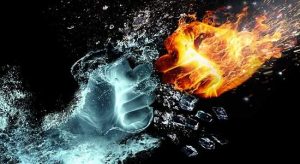
Be it warm or cold, the benefits of drinking water accrues to both. However, the temperature difference of the water you drink leads to certain additional advantages and/or disadvantages to your body.
Health Benefits and Disadvantages of Drinking Hot Water
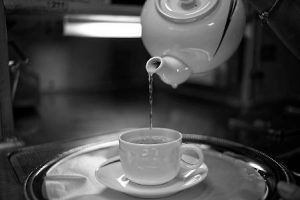
When we say “hot” or “warm”, we actually mean more like around 160 °F (71 °C). While below that figure may be okay too, going above it can turn out to be bad.
Below are some of the benefits of hot water:
-
Improves Bowel Movement
As we have already discussed in the above sections, drinking water on an empty stomach helps to improve gut health. Additionally, drinking hot water on an empty stomach in the morning helps to contract your intestines and push out any old waste trapped inside it.
-
Soothes A Sore Throat
This is a common remedy known to most of us. Sore throat caused by a mucous build-up can be soothed by drinking warm water.
You can also add a half teaspoon salt to the hot water and gargle it to help with the sore throat.
-
Aids in Digestion
We have already seen in the above sections how water helps in digestion. In addition to that, warm water benefits your intestines by helping it break down the food particles more easily.
-
Reduces Stress And Anxiety
Drinking hot water (or even hot beverages, for that purpose) has a relaxing effect on the central nervous system by helping improve its functions.
According to a psycho-pharmacological study on temporal effects of hot drinks (water, tea, coffee etc.), it was observed that both caffeine and milk addition to beverages independently improved mood and reduced anxiety 30 and 60 min post-consumption. So adding caffeine or milk to hot water would help you relax even more.
-
Helps People With Achalasia
People with Oesophageal achalasia experience difficulty in swallowing, regurgitation, and sometimes chest pain after eating food. Patients with achalasia are recommended to eat hot and warm food and avoid cold food.
According to a study conducted in China, it was observed that hot water could reduce LES (lower oesophageal sphincter) resting pressure, assist LES (lower oesophageal sphincter) relaxation, shorten the contraction duration of oesophageal body and relieve symptoms.
-
Helps With Weight-Loss
Drinking hot water causes the body to expend energy in order to maintain the body’s thermal equilibrium. This increases your resting energy expenditure and helps lose weight.
It looks like the benefits of hot water are plenty.
Now, when should you NOT drink hot water?
That depends on the situation. While hot water is a pretty good drink, it does reduce your thirst. So if you are ever in a situation in which there is a chance of getting dehydrated (like on a hot summer day or when working out), avoid drinking hot water.
Also don’t drink water that is too hot as you will end up with a scorching tongue, oesophagus and other inner (and possibly outer, as you may spill due to the shock) parts of your body.
Is Cold Water Bad for Your Health?
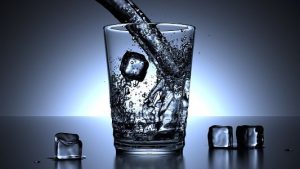
Let’s move on to cold water. Ever since we were children, our parents have repeatedly warned us against cold water and foods. There, we get entangled in a plethora of beliefs and very less research.
Below is a list of facts associated with cold water consumption:
-
Avoid Cold Water During Flu Or Common Cold
It is a bad idea to drink cold water when you have a flu or cold. This is because cold drinks decrease the nasal mucus velocity. In other words, the mucus build-up in the body hardens when you drink cold water. This prolongs your illness.
According to an old study (and my grandmother), hot liquids are superior to cold liquids in the management of upper respiratory infections.
-
Achalasia Patients Should Avoid Cold Drinks
As a corollary to the benefits of drinking hot water, patients with achalasia should avoid cold foods.
-
People With Upper Respiratory Issues Should Avoid Cold Drinks
People with allergic rhinitis or respiratory infections should reduce/avoid the ingestion of cold foods.
This is because upper respiratory issues are frequently accompanied by constriction of airways which makes it difficult for them to breathe. Cold foods can exacerbate this condition by contracting the airways further.
-
People With Migraines Should Avoid Cold Drinks
People with active migraines (those who had one or more attacks in less than a year) are better off avoiding cold water or food.
According to a Swedish study of 2001, women who had experienced one or more migraine attacks in the last year (active migraine) were twice as likely to experience a headache from ingesting the cold water as women who had never suffered from migraine.
-
Helps With Weight-Loss
Drinking cold water causes the body to expend energy to maintain your core temperature. This helps to lose weight by increasing your resting energy expenditure.
There is also something called the “Ice Diet” in which you consume ice in order to lose weight. When ingesting clinically significant amounts of ice, the body must burn energy to warm the ice to body temperature.
-
Helps to Prevent Overheating During Workouts
Exercising (esp. in hot environments) causes our core temperature to go up. Beyond a certain limit, this can be very bad.
A 2010 British study among football players found that elevated core temperature levels has been reported to affect cognitive ability, elevate sympathetic nervous system activity, increase central fatigue, and ultimately lead to heat exhaustion/stroke if left unattended.
According to a 2012 study published in the Journal of the International Society of Sports Nutrition, drinking cold water can significantly mediate and delay the increase in core body temperature during an exercise session in a moderate climate.
The list of benefits of drinking cold water may seem a little thin. But the fact is that hot water is superior to cold water in the context of health.
How Much Water Should We Consume?
Some of us must have heard about the 8 X 8 rule by which we are supposed to drink atleast eight 8-oz glasses of water every day. However, this is probably a myth as studies conducted to find scientific evidence for this has so far yielded no results.
As per DRI (Dietary Reference Intake), the daily RDA (Recommended Dietary Allowance) for water is around 3.7 L for a male and 2.7 L for a female over an average sedentary population.
You can calculate your daily water requirement based on your level of activity, age and weight here.
Please note that other drinks like tea, coffee, alcohol, sweetened beverages etc. does not count as “water” in this context. You need clean drinking water that complies with international standards for safe, quality drinking water.
When is the Best Time to Drink Water?
The benefits of drinking water (esp. warm water) in the morning have already been covered.
As to the frequency, you should be careful to not drink too much water at once and hence, should space it out. Just make sure to not drink more than 0.8 litres of water (28 ounces) in an hour. This is so that you can avoid over hydration.
Drinking water at night helps you stay sufficiently hydrated through your sleep. However, try to keep this atleast 2 hours before going to sleep. If not, then that will increase your frequency of urination at night. This disturbs your sleep cycles and will lead to a whole other host of health problems (including heart ailments) caused by sleep loss.
Symptoms and Dangers of Dehydration

Dehydration is a highly dangerous situation. It may be accompanied with the below in mild cases:
- Mood swings;
- Loss of skin moisture;
- Thirst and dry mouth;
- Decreased urine output;
- Muscle cramps;
- Headache;
- Light-headedness;
- Decreased skin elasticity
- Sleepiness;
- Lack of tear production;
- Increased risk of kidney stones;
- Low blood pressure;
In severe cases, it may cause:
- Loss of strength and stamina;
- Failure in kidney function;
- Shock due to low blood volume (hypovolemic shock);
- Lower cognitive function and fatigue;
- Swelling of the brain;
- Fits, seizures, coma or even death;
Symptoms and Dangers of Over-Hydration

After all the hype from across the internet about the importance of drinking water, it is quite possible that some people will force themselves (and more alarming, their kids) to drink more water. But we need to keep in mind that just like everything else, excess water consumption also can be a problem.
Psychotic polydipsia or Pathological water drinking can overwhelm the hypothalamic-kidney feedback loop and cause a condition called Hyponatremia.
The signs and symptoms of ranges from nausea and vomiting, headache, short-term memory loss, confusion, lethargy, fatigue, loss of appetite, irritability, muscle weakness, spasms or cramps, seizures, and decreased consciousness or coma.
There are cases in which children were diagnosed with this condition because their guardians made them drink too much water at once.
The maximum amount of water that a person with normal renal function can drink is 800-1,000 mL/hr. (note the per hour part. This means that too much too quick is not advisable) to avoid hyponatremia symptoms.
Frequently Asked Questions
In here, we will try to briefly answer some common questions that readers have regarding this topic. Hopefully, most of these have been addressed within the blog itself.
-
What are the benefits of only drinking water for one full day a week?
- Drinking only water for one day a week is more like a type of fasting. This might be beneficial depending on how you do this. For details, you can read our article about fasting methods.
-
What are the benefits of drinking a gallon of water a day?
- This is a pretty good amount to be drinking per day if you are a woman and just the right amount if you are a man. The answer is based on RDA recommendations based on an average sedentary population. Benefits mentioned in this blog should apply if you drink this much water daily.
-
How does drinking 4 liters of water a day benefits us?
- This is a good amount of water to consume per day. Benefits mentioned in this blog should apply if you drink this much water daily.
-
How does drinking 2 liters of water a day benefits us?
- This is less than the recommended amount per day. As per DRI, 3.7 L for a male and 2.7 L for a female is average for a sedentary population.
-
What are the benefits of drinking a lot of water every day?
- We have actually covered this portion above. The benefits of drinking lots of water depend on how much you mean by “a lot”. As per DRI, 3.7 L for a male and 2.7 L for a female is average for a sedentary population.
-
Do the health benefits of drinking water apply to artificially sweetened beverages as well?
- NO! You must try to reduce the consumption of artificially sweetened beverages as much as possible. You should not substitute them for water.
-
What are the benefits of drinking water for weight loss?
- Water helps you lose weight by reducing your cravings, increasing your resting energy expenditure and increasing your physical/endurance capacity. Drinking plenty of water to lose weight is a very effective diet strategy. You can read our article on lesser known, highly effective weight-loss strategies for more details.
-
In Japanese Water Therapy, is it compulsory to drink water before brushing my teeth? Is it okay to drink after brushing?
- Standard therapy practices recommend that you should be drinking water in the morning before brushing your teeth. I believe that this may be due to the chemicals involved in brushing teeth (natural or otherwise) that might get accidentally ingested when we brush. In that case, water would not be the first thing that we ingest. I am not sure how much difference this would make but if you are really uncomfortable with drinking water before you brush, you may do it afterwards also.
-
In Japanese Water Therapy, can I go to the bathroom first and then drink water?
- As per popular sources, this has no bearing on the therapy.
Well… that’s it folks. Hope you enjoyed the article of the benefits of drinking water. You can learn more about health topics in our other articles. For example, check out article on health benefits of eggs.
Sign up for our newsletter today!!!!
We send out tips to help you lead a healthy life. Sign up to our newsletter to receive more health tips and be part of our community.

Like!! I blog quite often and I genuinely thank you for your information. The article has truly peaked my interest.
I wanted to thank you for this excellent read!! I certainly enjoyed every bit of it. I’ve got you saved as a favorite to check out new things you post…